European Union Centre organizes The Southern Taiwan European Culture Forum to share urban development trends, arts, and lifestyle in Europe
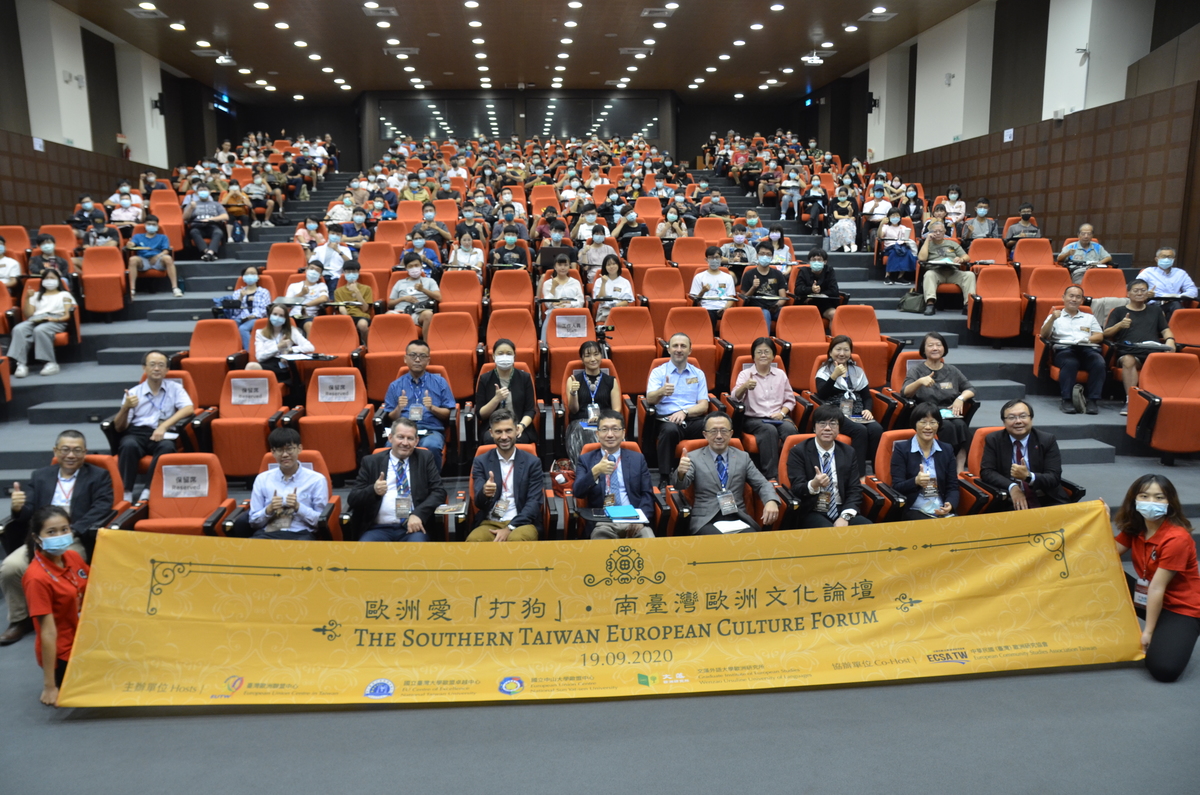
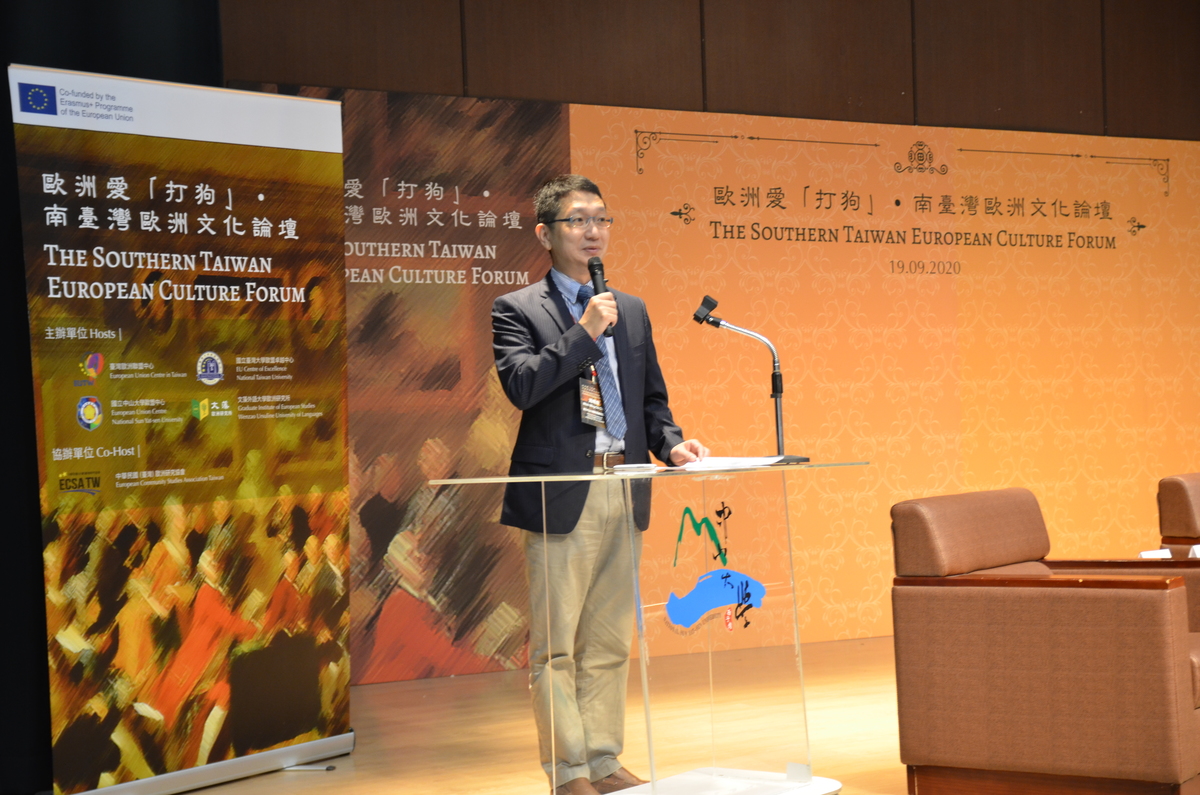
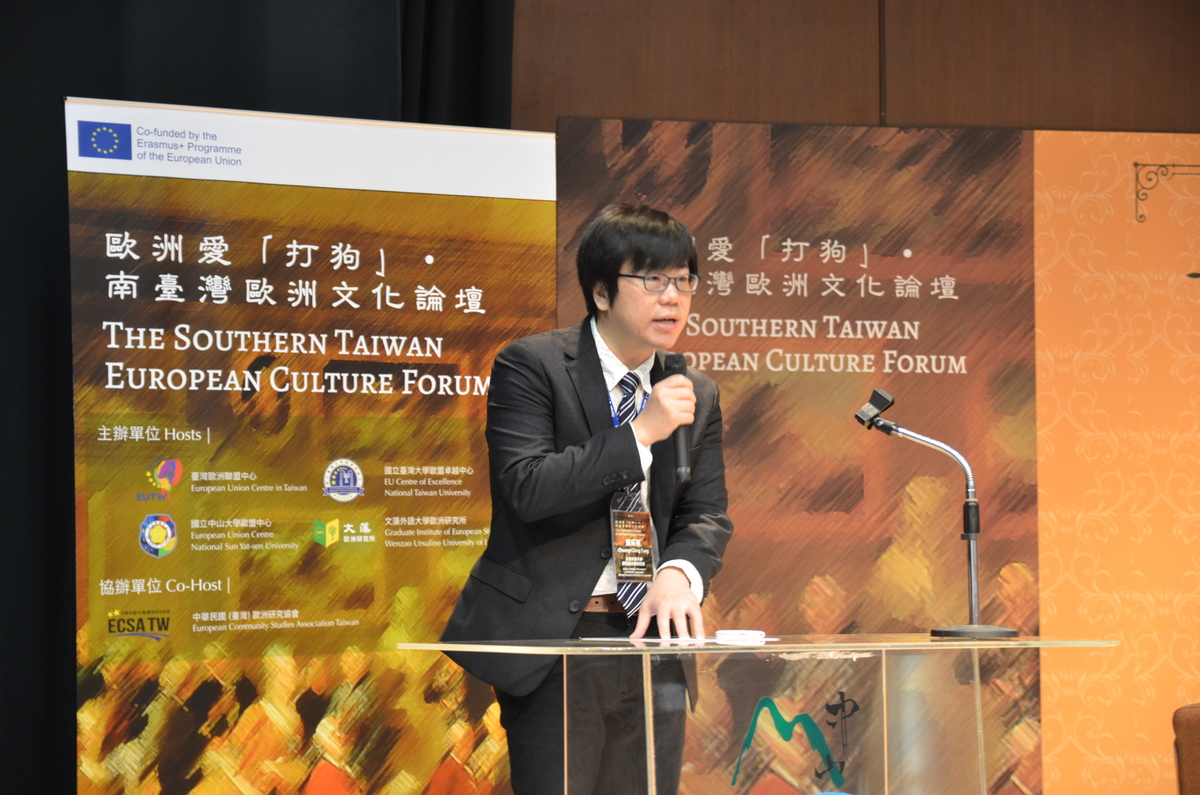
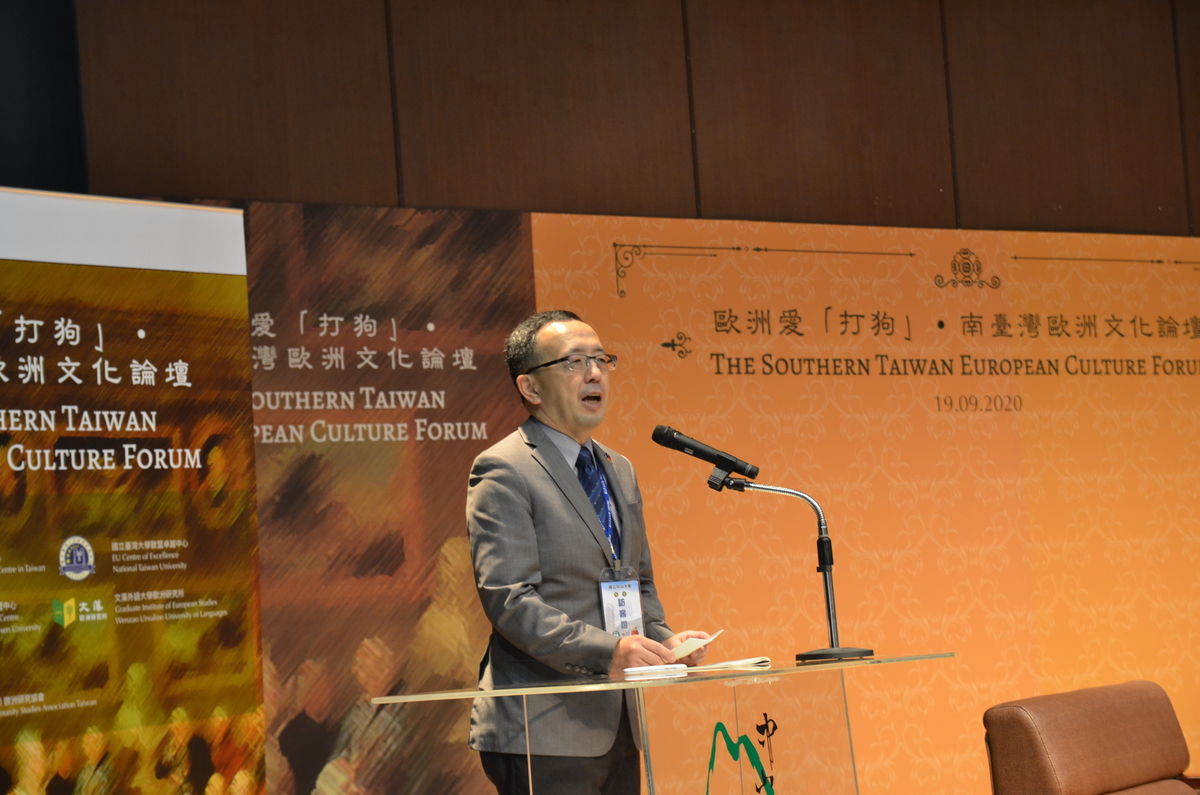
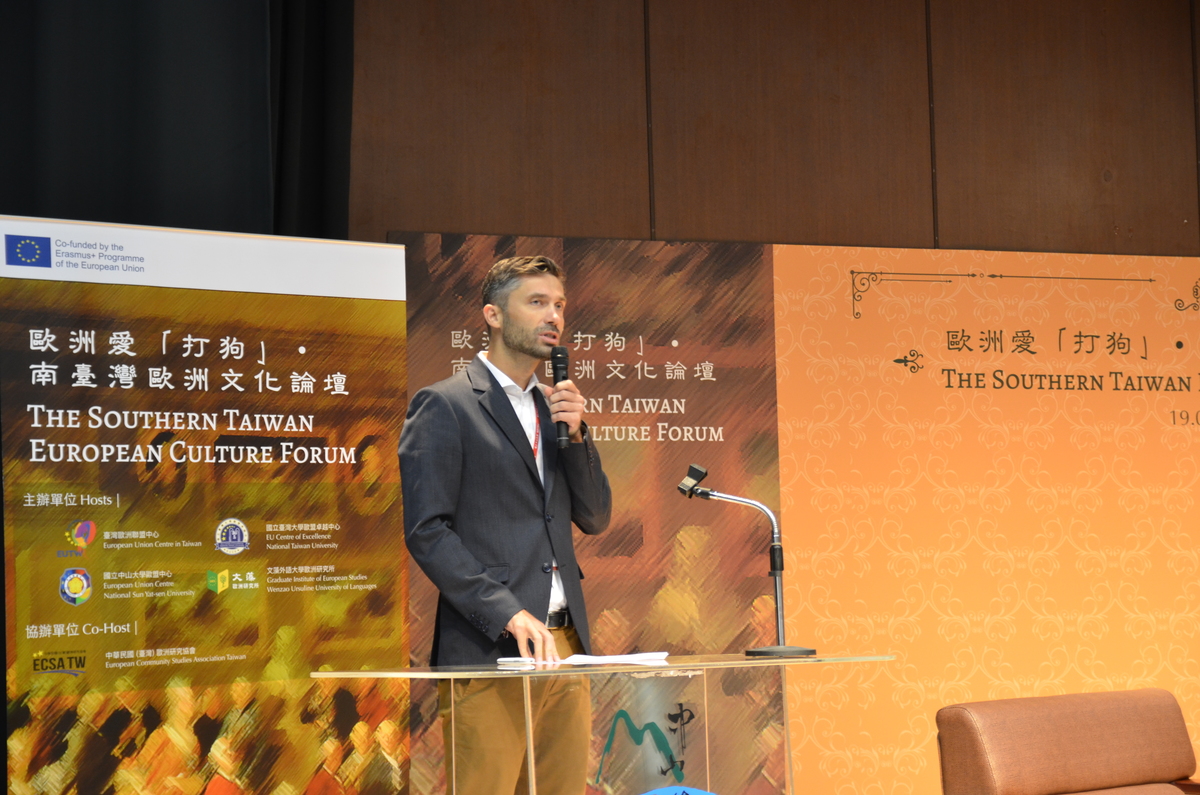
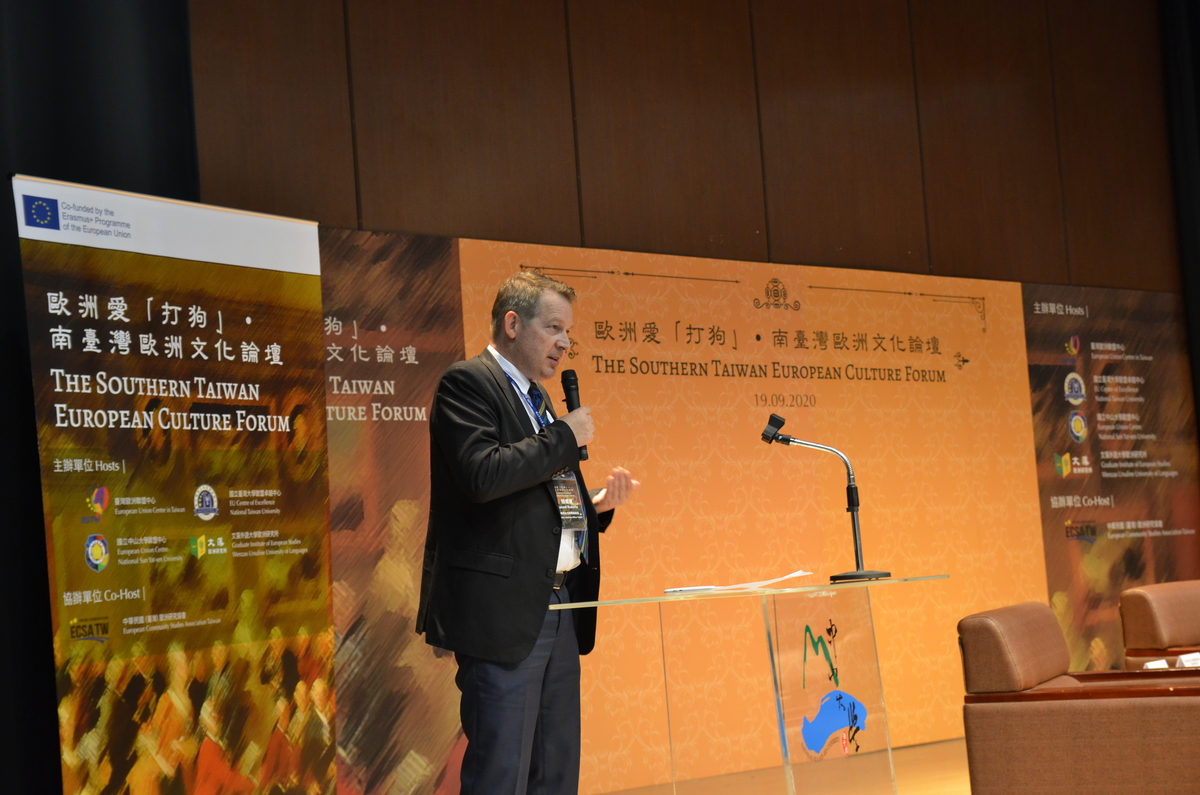
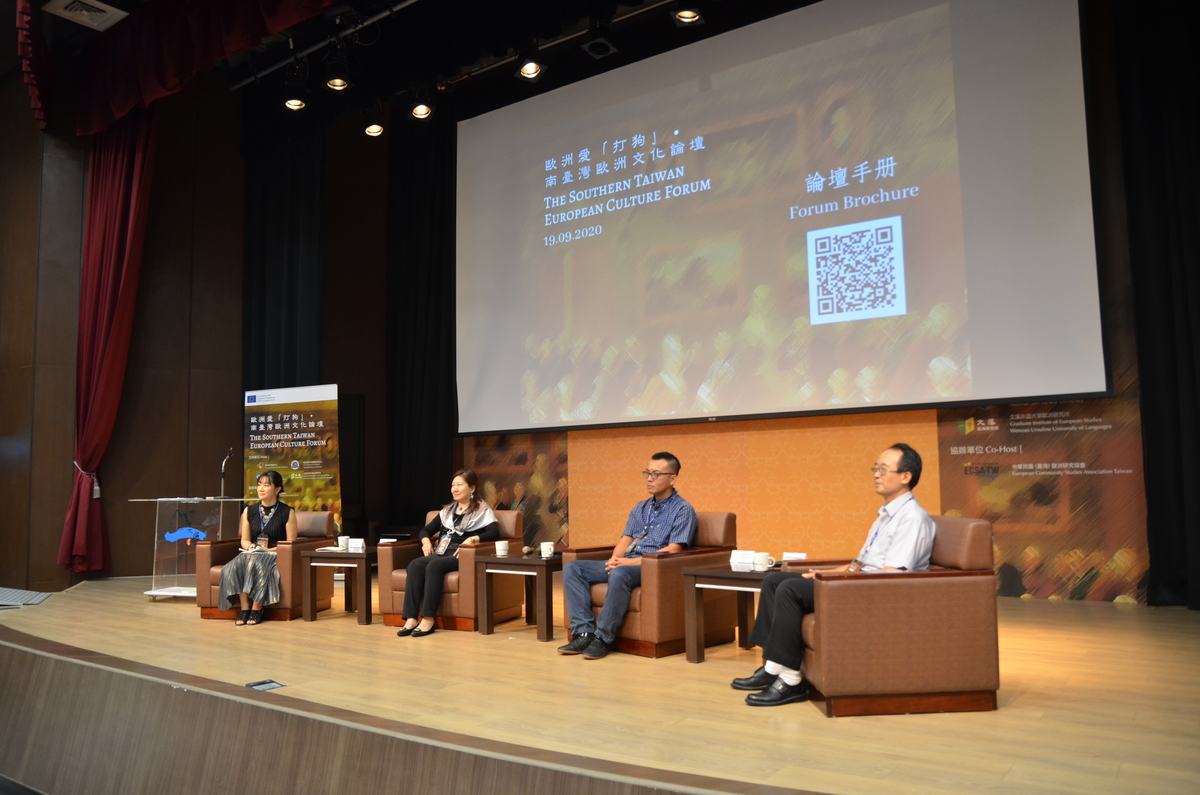
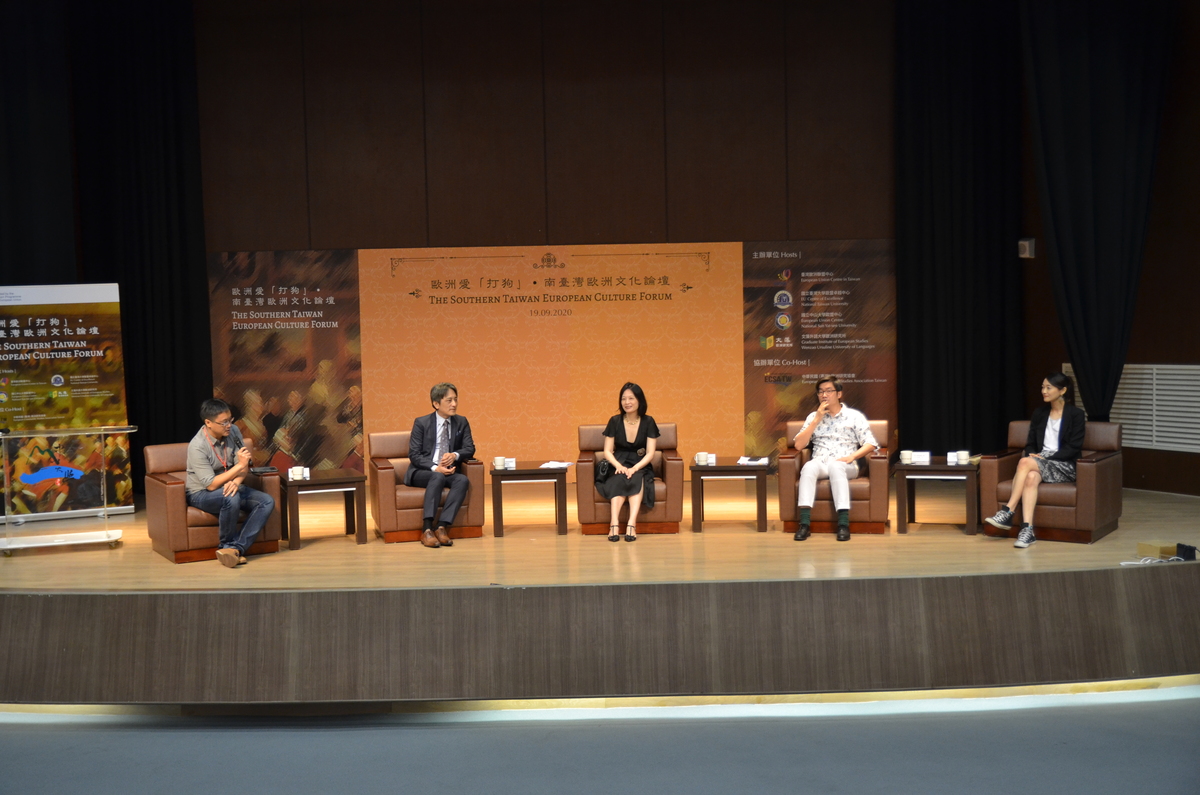
Europe is an important region for NSYSU's international cooperation, as it is home to one-third of NSYSU's sister universities, emphasized Senior Vice President Dr. Ming-Chi Chou. To promote the knowledge of the European culture and build a stronger connection between Kaohsiung and Europe, the European Union Centre at National Sun Yat-sen University, along with the European Union Centre in Taiwan and Wenzao Ursuline University of Languages (WZU), hosted the Southern Taiwan European Culture Forum on September 19, 2020, at NSYSU campus. During the intensive one-day Forum, the speakers compared recent urban transformation trends in Europe and Kaohsiung and shared their European lifestyle experiences, art decoration, and creative trends. It was an opportunity to compare Kaohsiung with cities in Europe and discuss the transformation of Kaohsiung from the perspective of the European culture, said Dr. Hungdah Su, Director General of the European Union Centre in Taiwan and Dr. Chuang-Ching Tung, Dean of the College of European and Asian Languages at Wenzao Ursuline University of Languages.
In the morning session, the speakers explored the trends that brought success to various European cities. Dr. Chia-Ling Lai, Director of the Graduate Institute of European Cultures and Tourism at National Taiwan Normal University, introduced two European coastal capitals – Denmark’s Copenhagen with its Scandinavian design and emphasis on environmentally friendly public transport and digital culture, and Greece’s Athens with a strong creative industry, connecting its rich ancient heritage with avant-garde art. Also, Dr. Kuei-Hsiang Liao, Associate Professor of the Department of German Language and Culture at Soochow University, explained how Hamburg, the second-largest city in Germany, has transformed after the country’s reunification in 1990 and managed to build its image of a cultural city, thanks to its community culture workers’ initiative and the imposition of a culture and tourism tax. Similarly, Kaohsiung City, an industrial port city in the past, has undergone an enormous change within the last 20 years, thanks to various projects that have restructured and reoriented this city towards creativity and livability. Despite the change, Kaohsiung still preserves the memory of its industrial past, said Dr. Yu-Hsuan Lee, Assistant Professor of the Department of International Affairs and Graduate Institute of European Studies, WZU. “The transformation of public space into more livable areas will strengthen any local community”, said Director of the Austrian Office Taipei Mr. Roland Rudorfer. He illustrated his view by providing the example of Vienna, Austria’s capital. As one of the most livable cities worldwide, Vienna offers affordable public transportation and housing, rich cultural offerings, and the construction of a hydropower plant combined with a recreational park in a natural habitat.
The afternoon session of the Forum concentrated on various aspects of European aesthetics. Head of the European Economic and Trade Office Mr. Filip Grzegorzewski, in his opening speech, emphasized that culture is an expression of the values we believe in and that the creative industry in Europe is thriving. The point was further proved by art collectors Dr. Tsong-Jou Wei and Dr. Jye-Ni Tsay in their presentations in the session. Wei and Tsay, who both obtained a Ph.D. degree in France, experienced the strong and competitive market of antique furniture and the deeply-rooted tradition of decorating interiors with paintings. Even students living on 5 m2 would have at least one painting on the wall, said Tsay. In addition to the aesthetics in arts and antiques, Dr. Liang-Chen Wang, the Owner of Paris-Belleville Architects, led the audience to appreciate the beauty of European architecture and emphasized the importance of natural light in European arts and architectural design.
As a fashionology specialist educated in the Netherlands, Dr. Shih-Ying Lin, Assistant Professor of the Department of Styling and Cosmetology at the Tainan University of Technology, explained how design and fashion in Europe respond popular culture and recent trends, such as gender issues and body positivity. Sustainable and ethical fashion trends are on the rise as the media uncover unethical production practices, enormous waste and pollution of the fashion industry. Nowadays, fashion is not only a choice based on consumer’s aesthetics but also values, as said by Anna Lappe: “Every time you spend money, you're casting a vote for the kind of world you want."
The Forum was jointly hosted by the European Union Centre in Taiwan, European Union Centre of Excellence at National Taiwan University, the EU Centre at National Sun Yat-sen University, the Institute of Political Science, the Graduate Institute of European Studies at Wenzao Ursuline University of Languages, co-hosted by European Community Studies Association Taiwan, and co-sponsored by the Erasmus+ Programme of the European Union. Established in 2009, the European Union Centre under the Office of International Affairs at NSYSU aims at promoting the understanding of the European Union in forms of forums, talks, cultural exchanges, camps, and community services.
In the morning session, the speakers explored the trends that brought success to various European cities. Dr. Chia-Ling Lai, Director of the Graduate Institute of European Cultures and Tourism at National Taiwan Normal University, introduced two European coastal capitals – Denmark’s Copenhagen with its Scandinavian design and emphasis on environmentally friendly public transport and digital culture, and Greece’s Athens with a strong creative industry, connecting its rich ancient heritage with avant-garde art. Also, Dr. Kuei-Hsiang Liao, Associate Professor of the Department of German Language and Culture at Soochow University, explained how Hamburg, the second-largest city in Germany, has transformed after the country’s reunification in 1990 and managed to build its image of a cultural city, thanks to its community culture workers’ initiative and the imposition of a culture and tourism tax. Similarly, Kaohsiung City, an industrial port city in the past, has undergone an enormous change within the last 20 years, thanks to various projects that have restructured and reoriented this city towards creativity and livability. Despite the change, Kaohsiung still preserves the memory of its industrial past, said Dr. Yu-Hsuan Lee, Assistant Professor of the Department of International Affairs and Graduate Institute of European Studies, WZU. “The transformation of public space into more livable areas will strengthen any local community”, said Director of the Austrian Office Taipei Mr. Roland Rudorfer. He illustrated his view by providing the example of Vienna, Austria’s capital. As one of the most livable cities worldwide, Vienna offers affordable public transportation and housing, rich cultural offerings, and the construction of a hydropower plant combined with a recreational park in a natural habitat.
The afternoon session of the Forum concentrated on various aspects of European aesthetics. Head of the European Economic and Trade Office Mr. Filip Grzegorzewski, in his opening speech, emphasized that culture is an expression of the values we believe in and that the creative industry in Europe is thriving. The point was further proved by art collectors Dr. Tsong-Jou Wei and Dr. Jye-Ni Tsay in their presentations in the session. Wei and Tsay, who both obtained a Ph.D. degree in France, experienced the strong and competitive market of antique furniture and the deeply-rooted tradition of decorating interiors with paintings. Even students living on 5 m2 would have at least one painting on the wall, said Tsay. In addition to the aesthetics in arts and antiques, Dr. Liang-Chen Wang, the Owner of Paris-Belleville Architects, led the audience to appreciate the beauty of European architecture and emphasized the importance of natural light in European arts and architectural design.
As a fashionology specialist educated in the Netherlands, Dr. Shih-Ying Lin, Assistant Professor of the Department of Styling and Cosmetology at the Tainan University of Technology, explained how design and fashion in Europe respond popular culture and recent trends, such as gender issues and body positivity. Sustainable and ethical fashion trends are on the rise as the media uncover unethical production practices, enormous waste and pollution of the fashion industry. Nowadays, fashion is not only a choice based on consumer’s aesthetics but also values, as said by Anna Lappe: “Every time you spend money, you're casting a vote for the kind of world you want."
The Forum was jointly hosted by the European Union Centre in Taiwan, European Union Centre of Excellence at National Taiwan University, the EU Centre at National Sun Yat-sen University, the Institute of Political Science, the Graduate Institute of European Studies at Wenzao Ursuline University of Languages, co-hosted by European Community Studies Association Taiwan, and co-sponsored by the Erasmus+ Programme of the European Union. Established in 2009, the European Union Centre under the Office of International Affairs at NSYSU aims at promoting the understanding of the European Union in forms of forums, talks, cultural exchanges, camps, and community services.
Click Num:
Share
